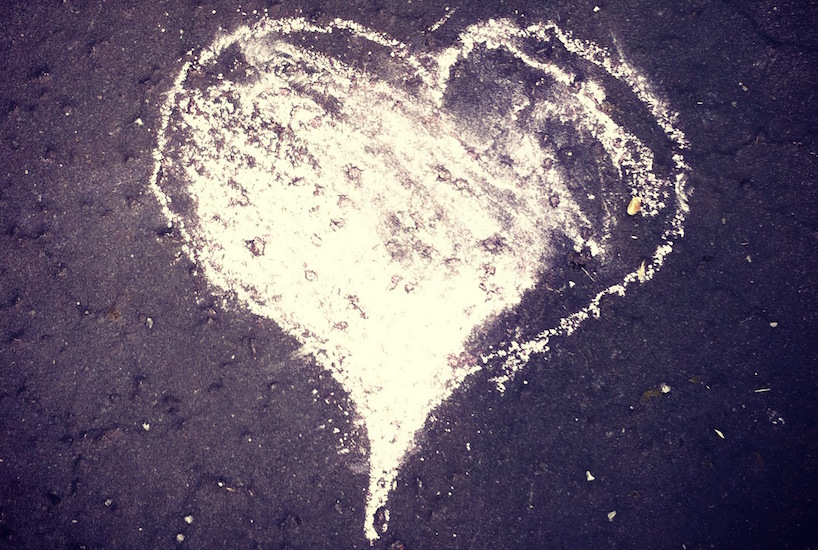What I Know About Love After Living With IBD
I’m a 32-year-old woman. Going by the plans I had when I was 6, I should have been happily married by now.
We would’ve gotten hitched with our many cats carrying my train with their tiny paws, and my devilishly handsome husband and I would be living in a nice house by the sea frolicking with crabs probably called Sebastian and having dinner parties where we’d serve trifle out of tiny teacups. Come to think about it, that 6-year-old vision of my life sounds like a lot of fun.
But I digress. In reality, I do live with a lovely man in a nice house (the closest we have to the sea is a river, though) and we do have two cats. Rarely any trifle. One of the main reasons my life didn’t end up like I thought it would when I was 6 is because I was diagnosed with a chronic illness called Crohn’s disease at age 26. At 6 years old, or any age, poor health is never part of the grand plan.
For those unfamiliar with the condition, Crohn’s is an invisible and incurable illness, which causes inflammation of the intestinal tract.
Before I knew I had Crohn’s, I had arthritis. First in my knees at age 25. Nothing unusual about this, I hear you cry, but I was under the assumption at that time that only older people had arthritis.
I was in my 20s and suddenly found myself unable to so much as bend my legs. I was in the depressing position of considering treatments, drugs and having absolutely massive needles stuck into my knees.
By 26, I had arthritis and Crohn’s, and I was being wheeled in and out of hospitals so much I should’ve gotten air miles. I was terrified. I hated my new life and, more so, my body.
When I had my first surgery, I resigned myself to the fact my stomach would look repulsive. I’d have to dress in unflattering smocks for the rest of my existence. I realize now that the worry around my operation was just the cherry on an already highly calorific anxiety cake. My so-called invisible illness was having a much bigger impact on how I viewed my body than I’d anticipated.
It’s not all “invisible” with inflammatory bowel disease (IBD), though. Many of the treatments can leave distinctly visible side effects. Blood tests left my arms bruised and sore, cannulas left life-long scars over my hands and arms and intense courses of drugs left me either bloated like an inflated hamster or painfully thin.
I can’t control any of that, either. All of these annoyances are essential for my survival. That fact alone is exasperating. So I try to focus on what I can control. Seeing the positive in your perceived imperfections isn’t easy and made infinitely more difficult when our bodies are battling chronic illness.
If I struggle to see the good in myself and all else fails, I stand in front of the man I love in my birthday suit and check if he runs out the door screaming, crying in horror, or grins from ear to ear. Once I finally manage to beg him to come home and dry his tears, I feel I can achieve anything.
I jest, of course. Thankfully, my love is a patient man — in ways I often don’t realize. He is tender and kind; qualities I know I far too often take for granted. I probably don’t notice the majority of the things he does for me when I’m too wrapped up in my own pain.
When you are ill, sad and feel alone even when you are surrounded by people, you can be left feeling you aren’t worthy of love. I know, although I sometimes have to remind myself of the fact, that I too am “worthy” of everything good in the world and more. My disease shouldn’t define me or stand in the way of any relationship.
But often things “shouldn’t” happen yet they do. Life doesn’t always follow the route it’s meant to take. So it’s vital for me to remember why I shouldn’t allow my disease to become a challenge I can’t overcome. I accept and share love and want that to continue and flourish as I age. Chronic illness can be so all consuming that it can often nearly impossible for me to retain some semblance of a “normal” life. I become overwhelmed by pain and sadness. I push those I love away through frustration and fear. I feel less of myself. I feel ugly.
But I’ve come to accept that whether or not I feel beautiful (or even presentable from time to time), I know I am loved. Loved for who I am despite my disease and for who I’ve become because of it. That to me is true beauty. I’ll aim every day to continually appreciate the man I share my life with — the man who gives me all of his care and attention — and remember that love goes two ways.
I don’t love my disease, of course, but I do love what it has taught me about my own capacity for it. Limitless and immeasurable.
The Mighty is asking the following: What’s one thing people might not know about your experience with disability and/or disease, and what would you say to teach them? If you’d like to participate, please send a blog post to community@themighty.com. Please include a photo for the piece, a photo of yourself and 1-2 sentence bio. Check out our Submit a Story page for more about our submission guidelines.


